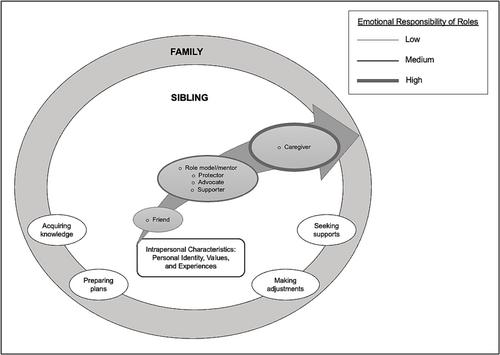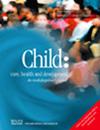Being a sibling of a youth with a neurodisability: A qualitative study about the roles and responsibilities during the transition to adulthood
Abstract
Background
During the transition to adulthood, a common challenge that youth with a neurodisability may experience is learning how to navigate services in the adult care system. During this transition youth may rely on their families, including siblings, for support. However, delineation of sibling roles and responsibilities during this transition period are unclear. This study aims to identify the roles and responsibilities that siblings perceive to have with their sibling with a neurodisability during the transition to adulthood, and describe the decision-making process of how siblings chose these roles.
Methods
In this descriptive qualitative case study, siblings were eligible to participate if they were between 14 to 40 years old, had a sibling between 14 to 21 years with a childhood-onset neurodisability and spoke English. Semi-structured interviews augmented by techniques of photo elicitation and relational maps were conducted. Reflexive thematic analysis was applied to identify sibling roles, as well as the emotional and decision-making process associated with these roles. Our team partnered with siblings with lived experience in all study phases.
Results
Nineteen participants (median age = 19 years, range = 14 to 33 years) from 16 unique families were interviewed. Six unique roles were described: friend, role model/mentor, protector, advocate, supporter, or caregiver. The emotions that siblings experienced with each role, also known as emotional responsibility, were categorized into levels of low, medium or high. Siblings also described a four-phase decision-making process for their roles: (1) acquiring knowledge; (2) preparing plans; (3) making adjustments; and (4) seeking support. Intrapersonal characteristics, including personal identity, values and experiences, influenced roles assumed by siblings.
Conclusions
Siblings identified needing support as they process their decisions and emotional responsibility in their roles when their sibling with a neurodisability is transitioning to adulthood. Resources should be developed or further enhanced to support siblings.


 求助内容:
求助内容: 应助结果提醒方式:
应助结果提醒方式:


